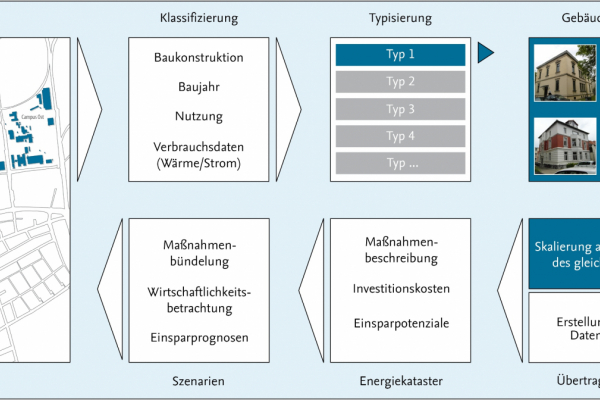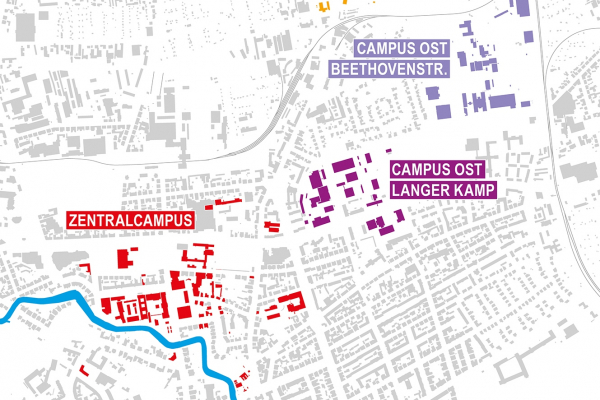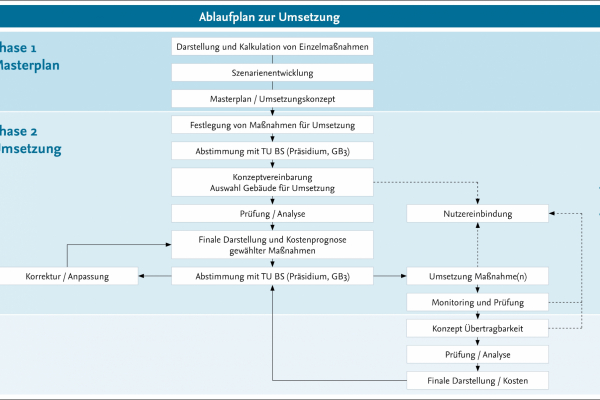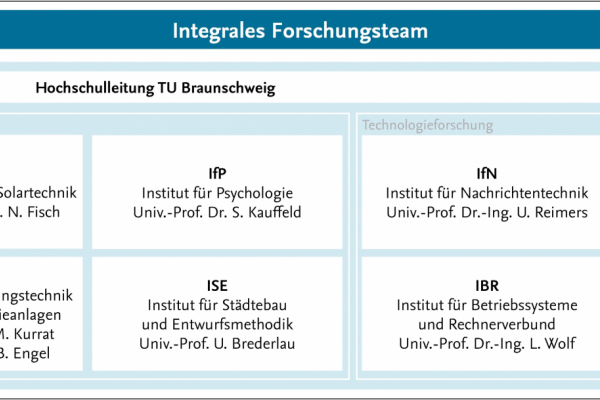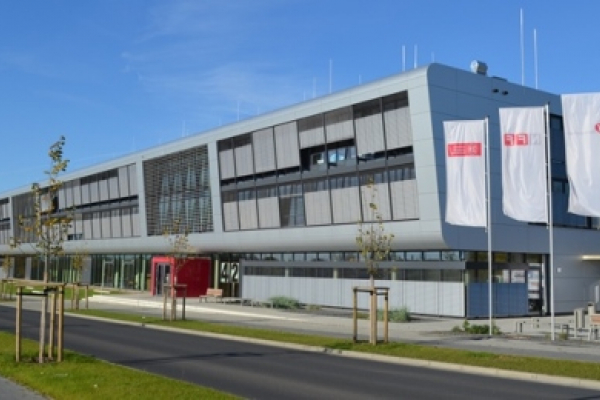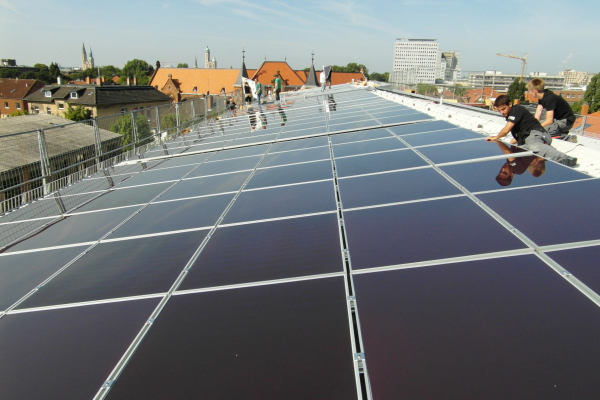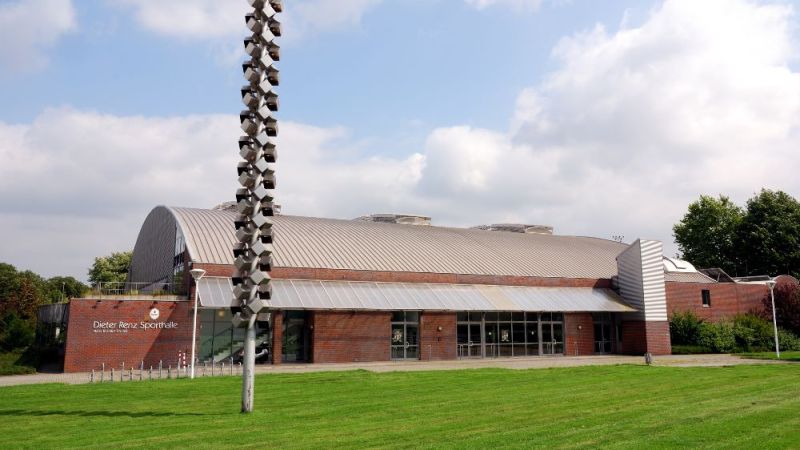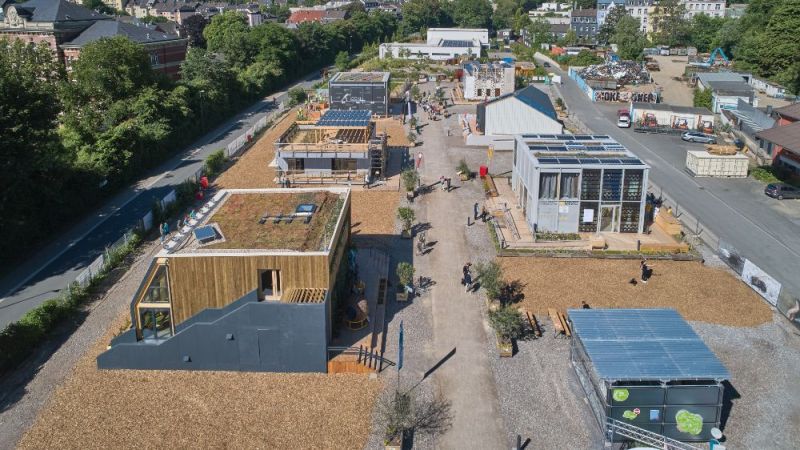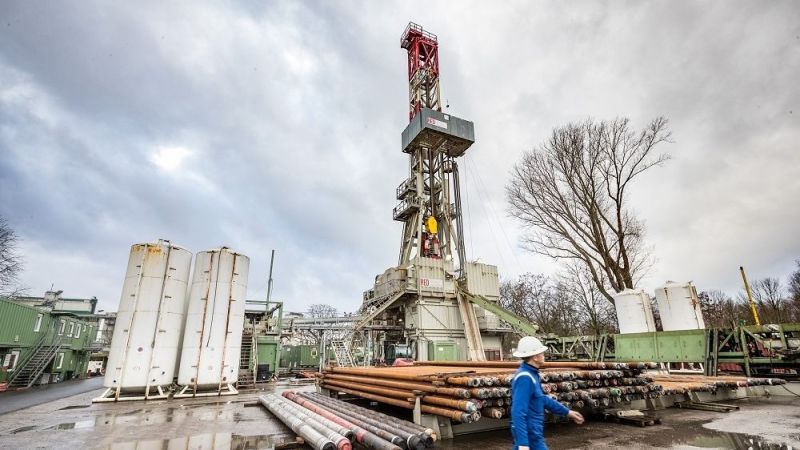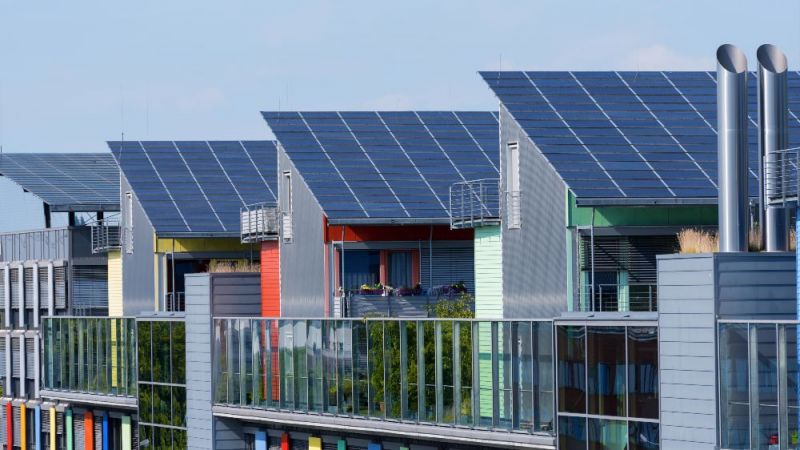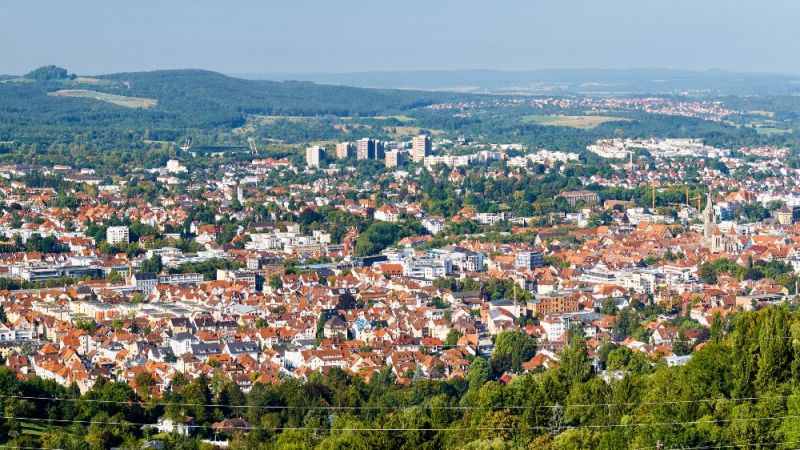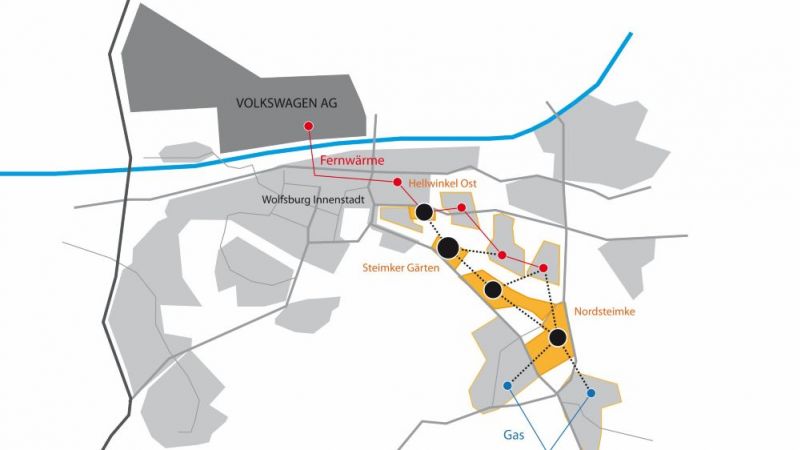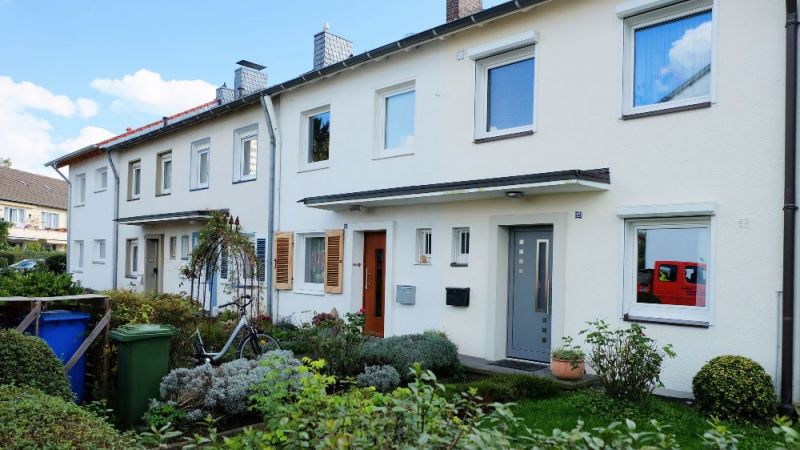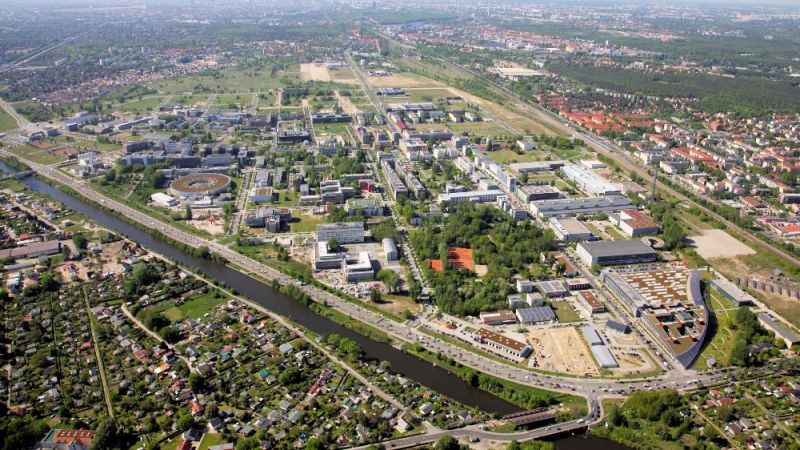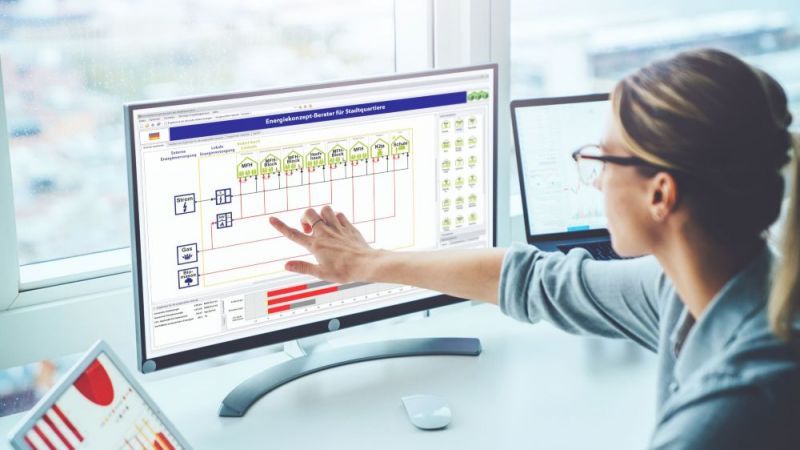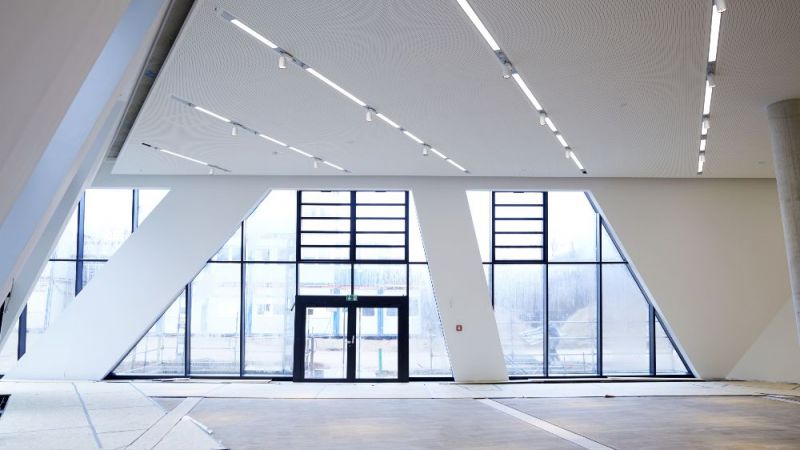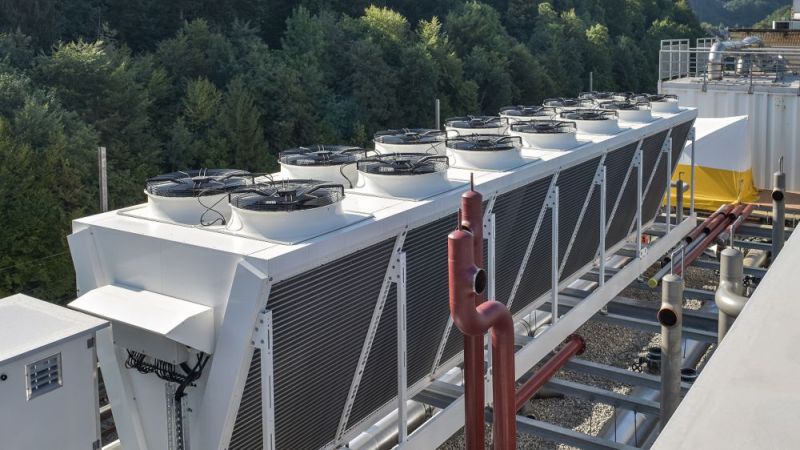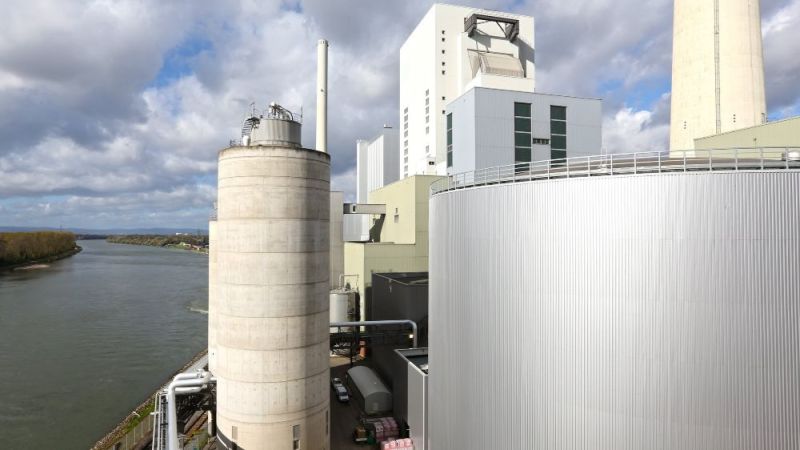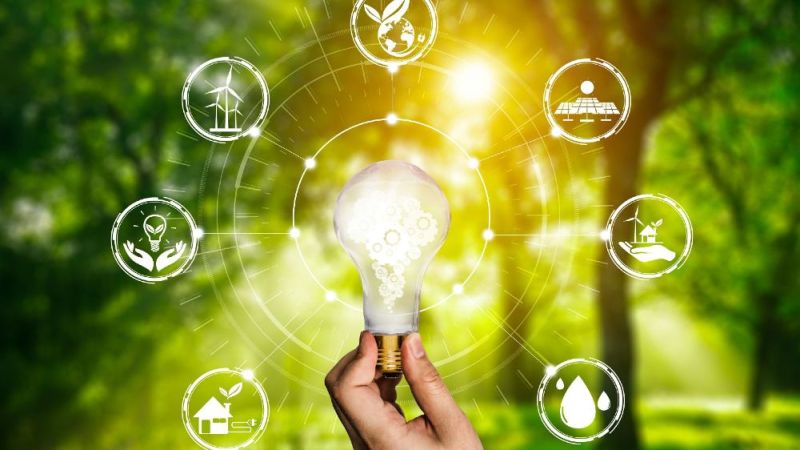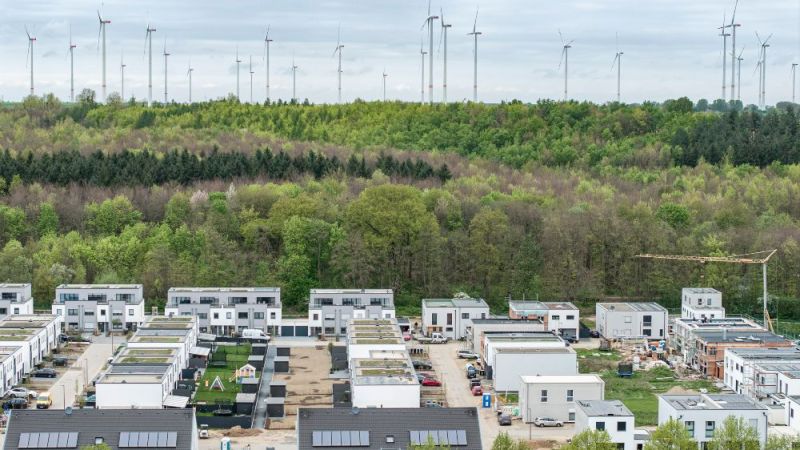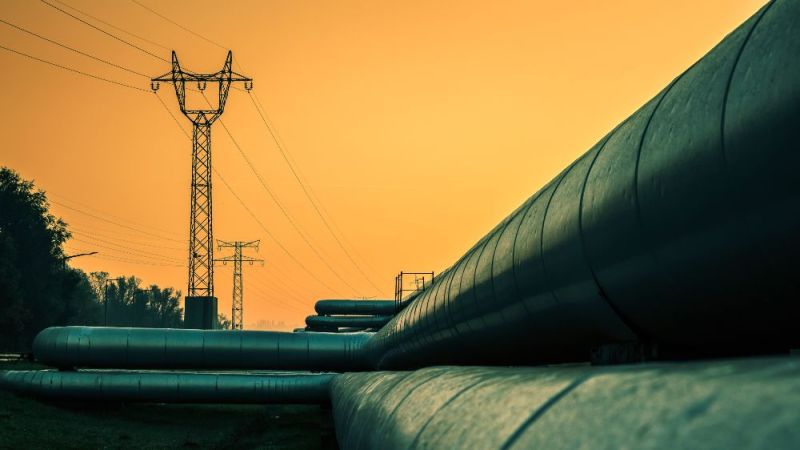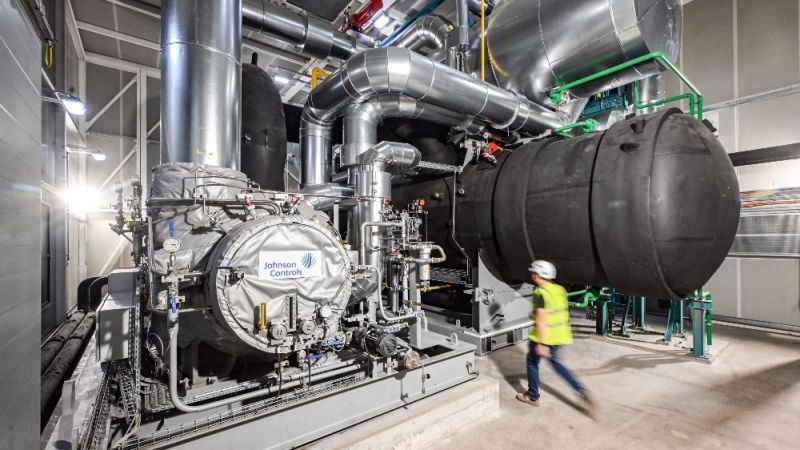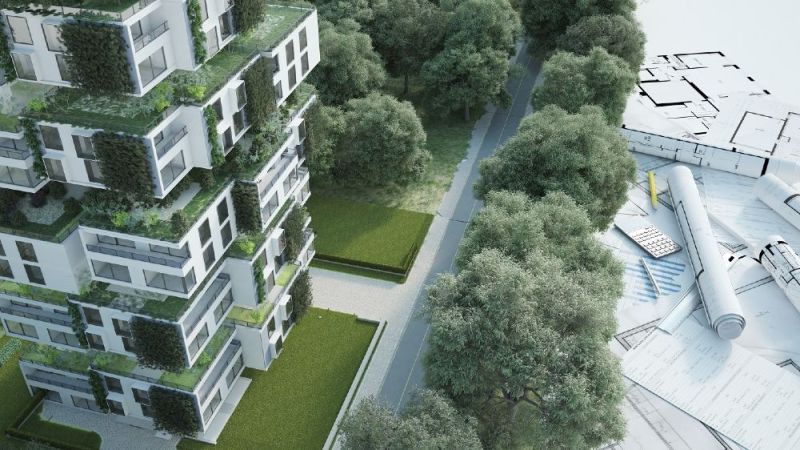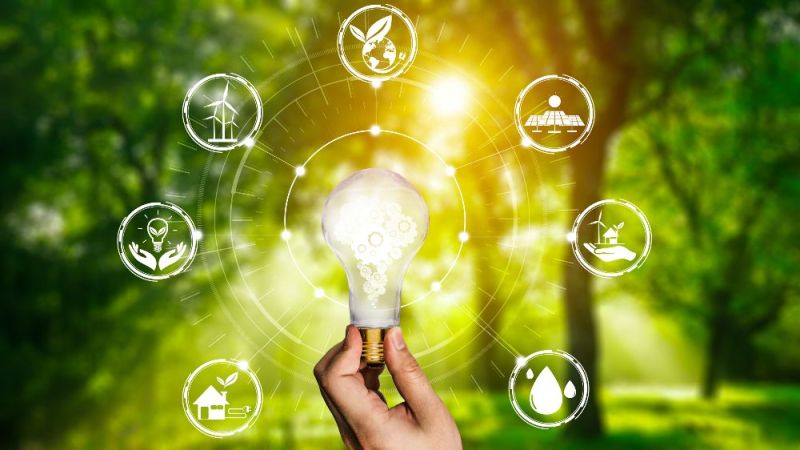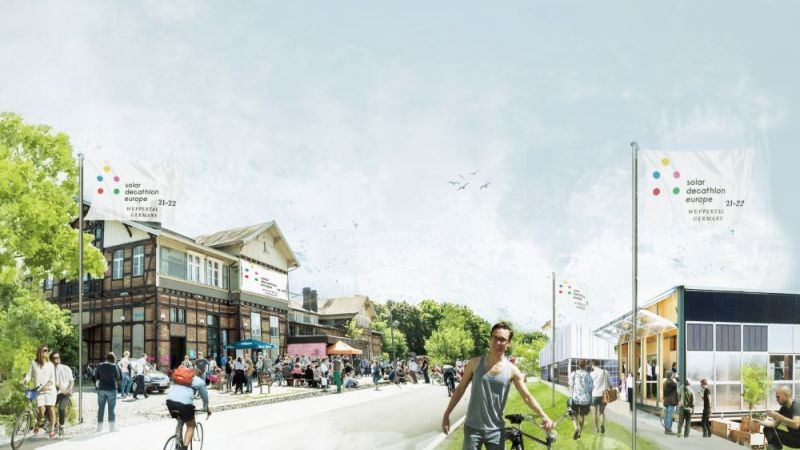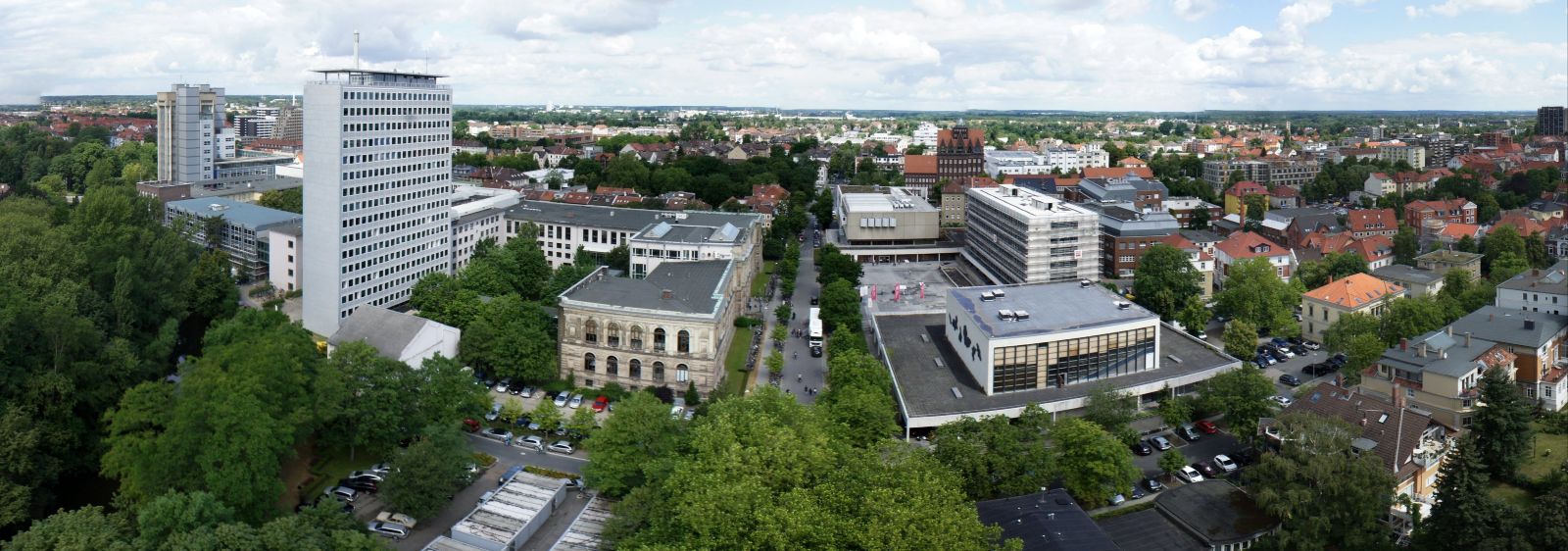
University Campus
The campus for the Technical University of Braunschweig is to become climate-neutral
As part of the “EnEff Campus 2020” project, during the next three years a multi-dimensional refurbishment concept for optimising the campus’s energy efficiency will be implemented, scientifically monitored and measured during operation. Parallel to this, a precise investigation of possible variants will be conducted with the long-term goal of achieving a largely CO2-neutral campus.
With the “EnEff Campus: bluemap TU Braunschweig” project, an energy efficiency master plan has been developed that aims to reduce the primary energy consumption of the Technische Universität Braunschweig by 40% by 2020. The implementation of the master plan was launched in September 2015 with the “EnEff Campus 2020” project, as part of which a multi-dimensional refurbishment concept for optimising the campus’s energy efficiency will be implemented during the next three years, scientifically monitored and measured during operation. Parallel to this, a precise investigation of possible variants will be conducted with the long-term goal of achieving a largely CO2-neutral campus. The combination of “ambitious targets, innovative measures and concrete implementation” provides the optimum soundboard for energy research on multiplying the energy transformation in existing buildings.
Research focus
The first focus area is on demonstrating how the measures can be implemented in practice. These encompass not only new construction, refurbishment and maintenance but also energy supplies, user motivation and information as well as urban development. The individual strategies will be coordinated in conjunction with one another but can be implemented independently. This will make it possible to respond flexibly to potential changes without compromising the overall goal in terms of its underlying principles.
Second research focus area: The special data availability at TU Braunschweig is being utilised to develop a “Real-Life-Lab Campus TUBS” technology research platform with interconnected technology research strategies for highly innovative integral developments. The research will focus on the following areas:
- Users: Transparency of the energy consumption (signal analysis) through communicating the energy consumption to employees, staff and students
- Building management: Automated monitoring of the system functions
- Internet of Things: Intelligent system control.
Innerhalb der beiden Schwerpunktthemen findet ein kontinuierlicher Austausch hinsichtlich Entwicklung, Umsetzung und Erprobung innovativer Technologien statt.
District concept
As part of the completed research project, entitled “EnEff Campus: bluemap TU Braunschweig”, an integral energy efficiency master plan was developed for the campus at the Technische Universität Braunschweig. In line with the ambitious goals set by the German federal government’s Energy Concept, concrete measures partially aimed at reducing the primary energy by 40% by 2020 shall be realised, scientifically monitored and measured during operation. This objective corresponds to a doubling of the requirements stipulated by the German federal government for the entire existing building stock on route to transforming the energy supply by 2050.
The following specific measures were developed in the “EnEff Campus: bluemap TU Braunschweig” project as part of the master plan:
Building envelope
Energy efficient refurbishment of the building envelope to EnEV 2009
Investment costs: €120 million (€300/m²NFA)
Cost savings: €1.6 million p.a.
Amortisation: > 20 years
Primary energy: -9 %
CO2 emissions: -12 %
Biomethane CHP
Installation of a biomethane CHP plant with a thermal combustion capacity of 526 kW for supplying the East Campus and a smaller CHP plant with 148 kWtherm. for supplying the North Campus
Investment costs: €590,000
Cost savings: €320,000 p.a.
Amortisation: 2 and 6 years
Primary energy: -3 %
CO2 emissions: -10 %
Photovoltaic roof area analysis
The TU Braunschweig’s entire building stock was tested in terms of its suitability for integrating photovoltaics. Here the existing roof coverage with diverse technical installations and the shading from neighbouring buildings and trees were taken into account. Not taken into account were the condition and load-bearing capacity of the roofs and conservation requirements for individual buildings.
Investment costs: approx. €7.3 million (3.0 MWp)
Electricity savings: 2,590 MWh p.a.**
Cost savings: €480,000 p.a.
Amortisation period: 10-12 years
Primary energy: -6 %
CO2 emissions: -5 %
Area efficiency
Reduction of existing office space from approximately 60,000 m² or 15 m²/person (assessment according to DIN V 18599-10 as low to medium occupancy) to approximately 10 m²/person (high occupancy). This corresponds to a reduction of the office space of approximately 20,000 m². In addition, the elimination of the office space will also reduce associated ancillary areas such as corridors, toilets, storage and kitchenettes by a further 20,000 m².
Investment costs: n.n.
Heat savings: 2,680 MWh p.a.
Electricity savings: 670 MWh p.a.
Cost savings: €436,000 p.a.
Primary energy: -3 %
CO2 emissions: -3 %
Building services equipment
Energy efficient optimisation of all existing ventilation systems (HVAC systems) > 1,000 m³/h.
Investment costs: €4 million
Electricity savings: 5,950 MWh p.a.
Cost savings: €1.1 million p.a.
Amortisation: 2.5 years
Primary energy: -14 %
CO2 emissions: -12 %
Lighting
Replacement of the installed lighting in all circulation areas (corridors and stairways) and office and laboratory areas, use of LED lighting.
Investment costs: €2.57 million
Electricity savings: 3,050 MWh p.a.
Cost savings: €570,000 p.a.
Amortisation: 3 years
Primary energy: -8 %
CO2 emissions: -6 %
Technical equipment
Replacement of all old refrigerator and freezer equipment. Extrapolation based on the devices recorded and documented in existing building stock (approx. 70 % of appliances are in Energy Efficiency Class D and "poorer").
Investment costs: €1 million
Electricity savings: 950 MWh p.a.
Cost savings: €175,000 p.a.
Amortisation: 5 years
Primary energy: -3 %
CO2 emissions: -2 %
User behaviour
Energy savings by means of various types of measures: Participation/interaction with users; information (campaigns) and feedback (e.g. on the energy consumption)
Investment costs: €120,000
Cost savings: €900,000 p.a.
Primary energy: -8 %
CO2 emissions: -7 %.
Performance
The implementation phase
The aim of the “EnEff Campus 2020” follow-up project launched in September 2015 is to realise the conceptual implementation plan developed in the first phase. The integral concept consists of 4 strategies for optimising the energy efficiency of the campus. In the 3-year follow-up project these will be implemented for a large proportion of the roughly 200 buildings on the campus (approx. 400,000 m² NFA). Parallel to this, a comprehensive monitoring and evaluation concept will be established, whereby the focus of the research will be on demonstrating how the measures can be implemented in practice.
Demonstration of how measures can be implemented in practice
The first focus area is on demonstrating how the measures can be implemented in practice. These encompass not only new construction, refurbishment and maintenance but also energy supplies, user motivation and information as well as urban development. The individual strategies will be coordinated in conjunction with one another but can be implemented independently. This will make it possible to respond flexibly to potential changes without compromising the overall goal in terms of its underlying principles.
30.11.2021


